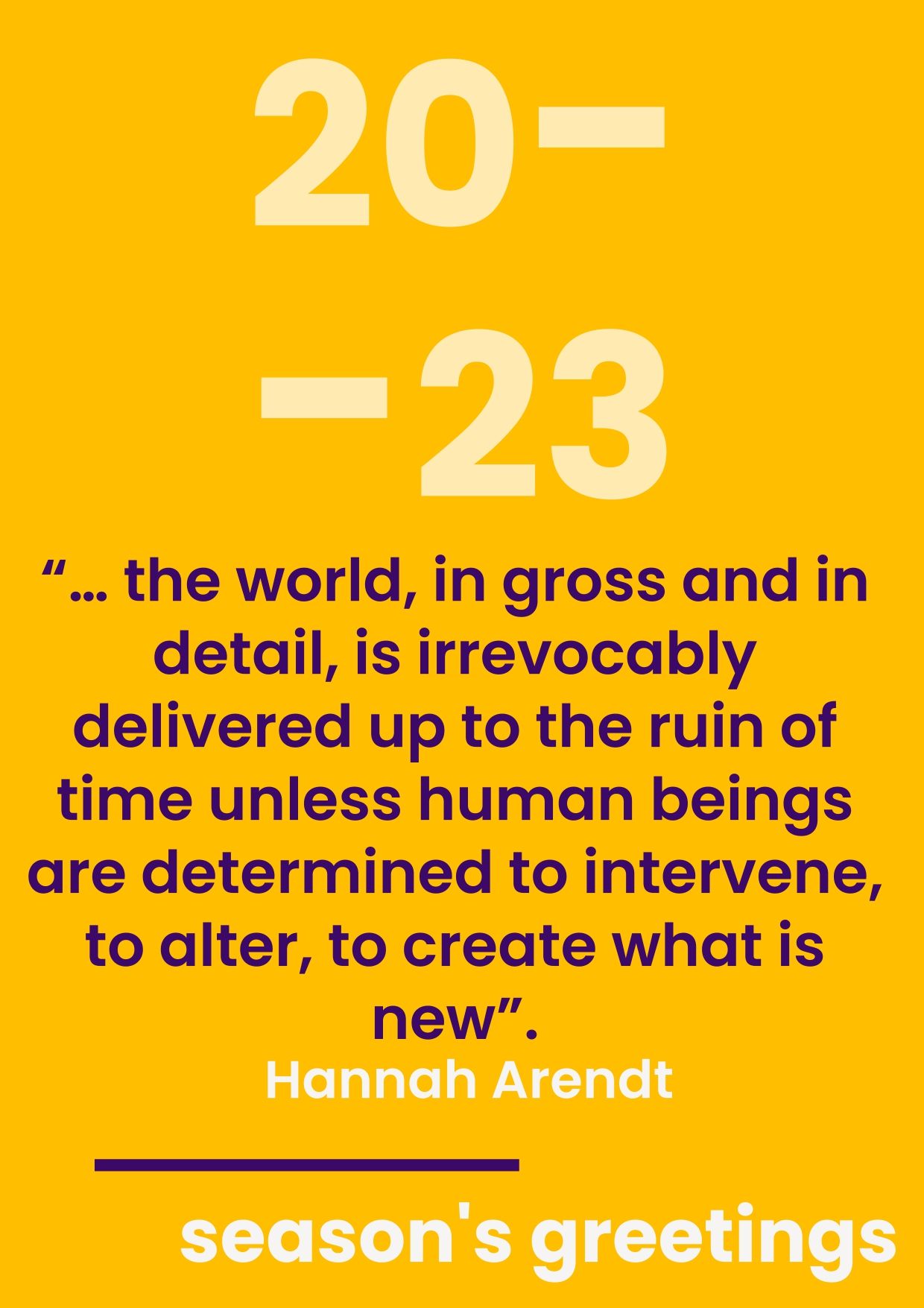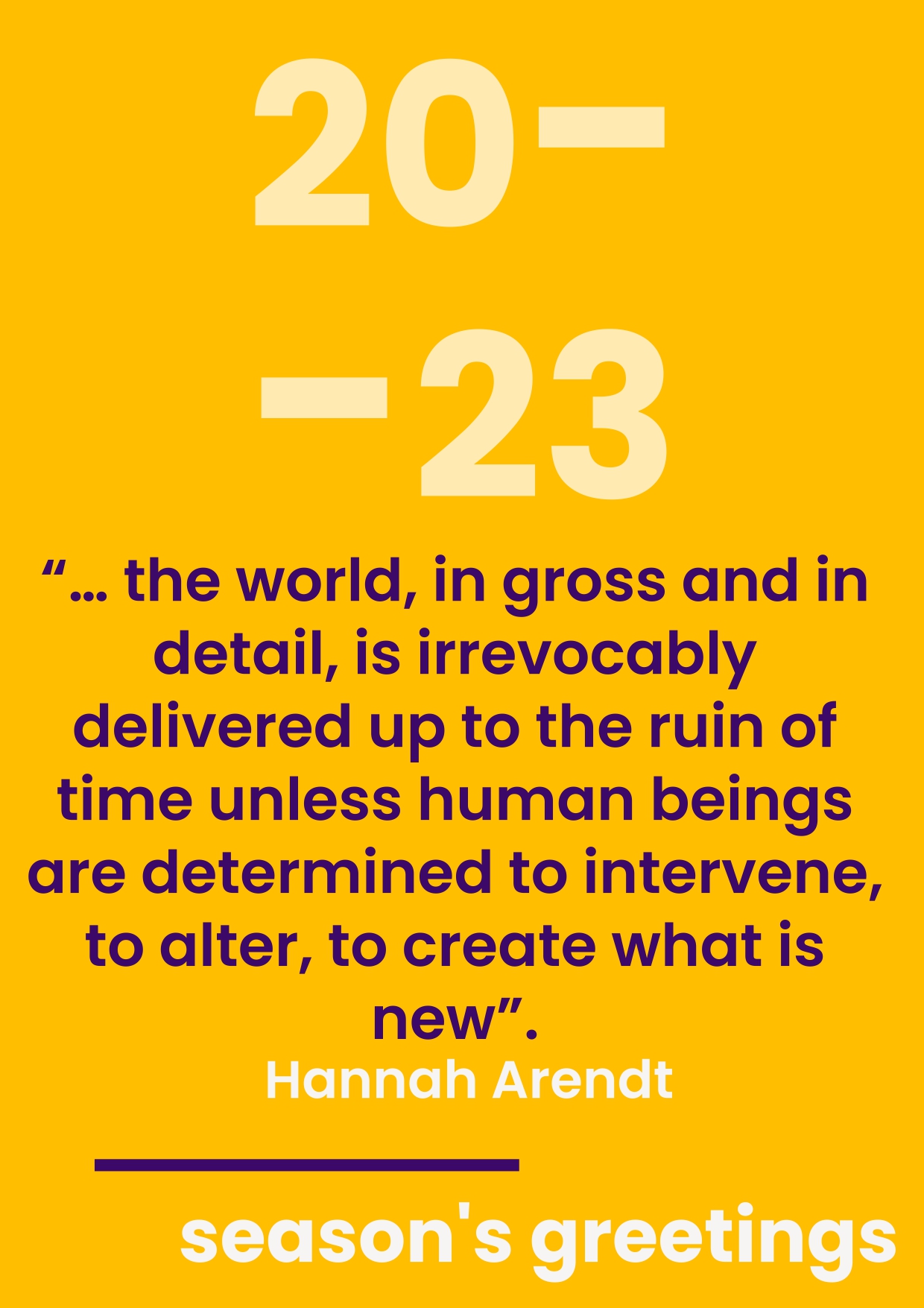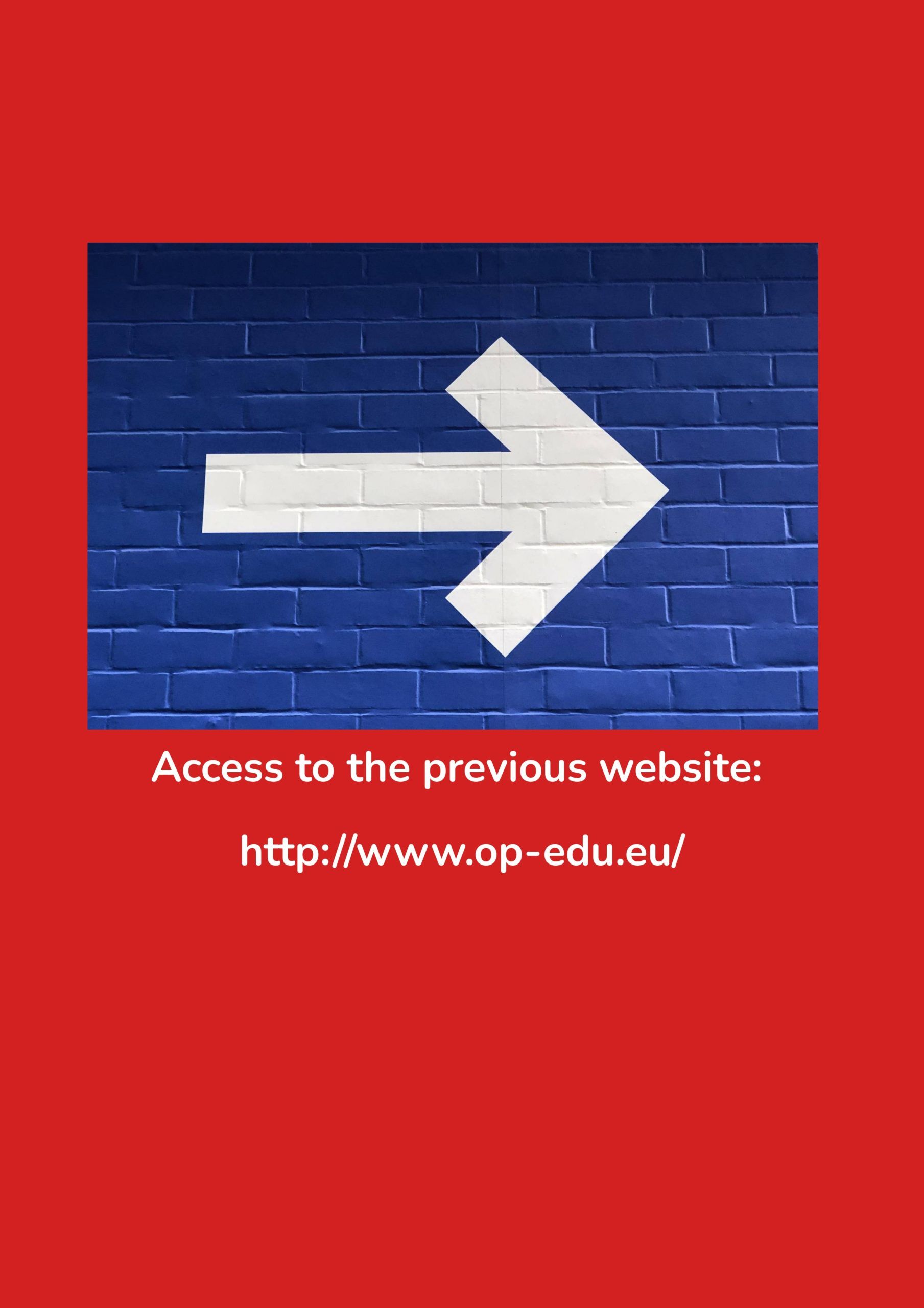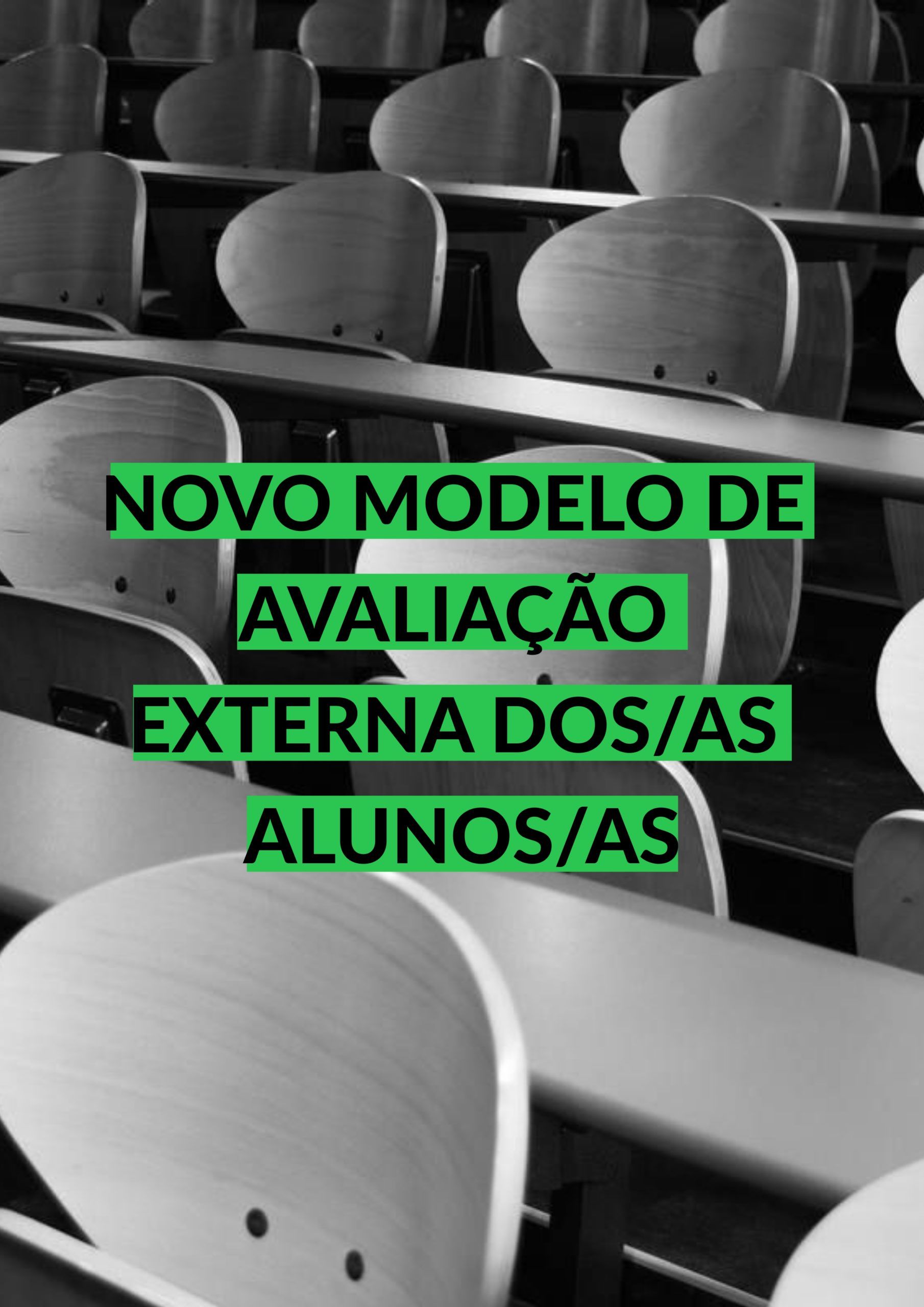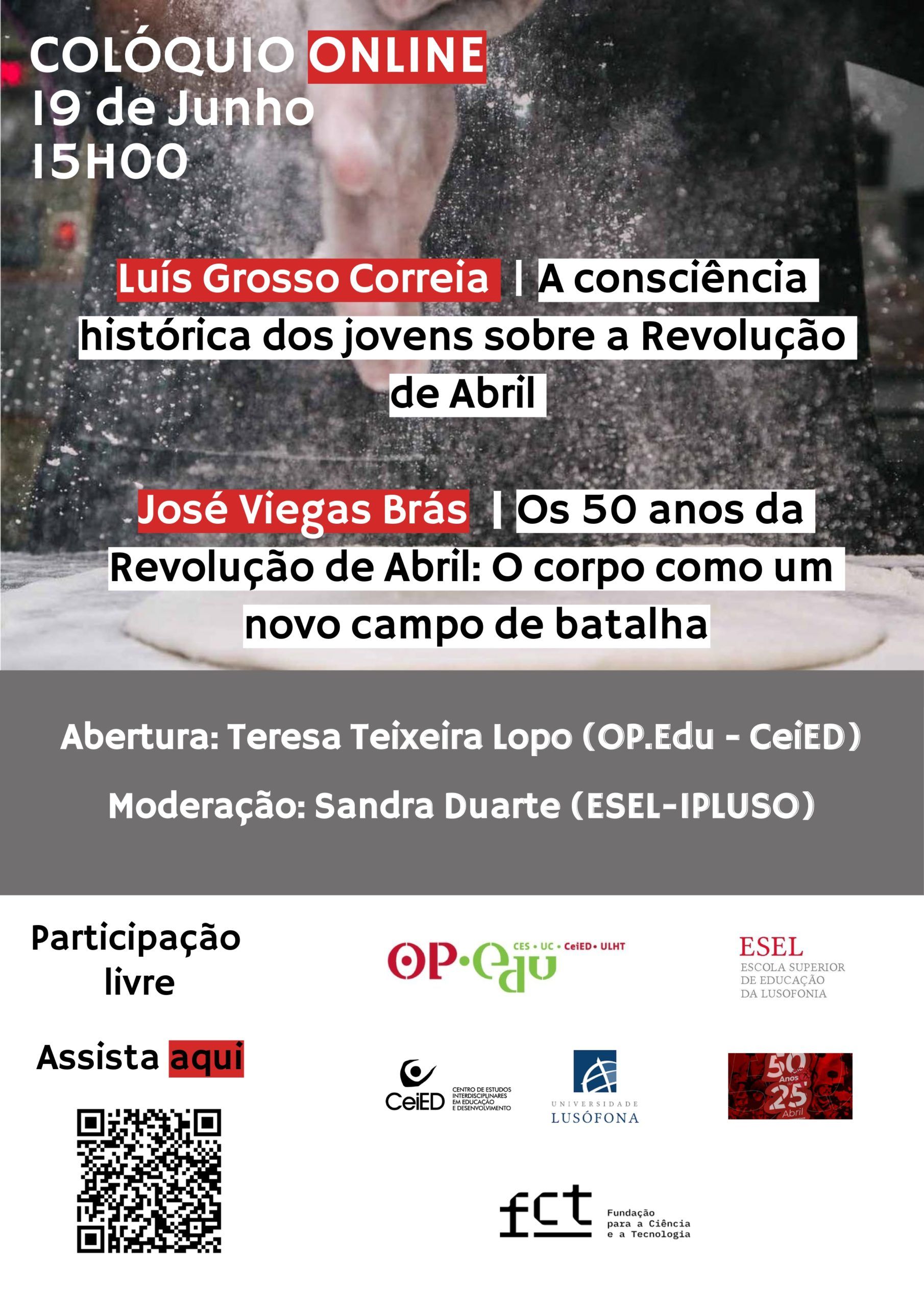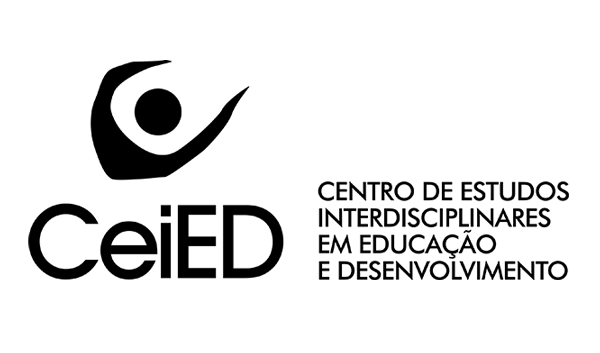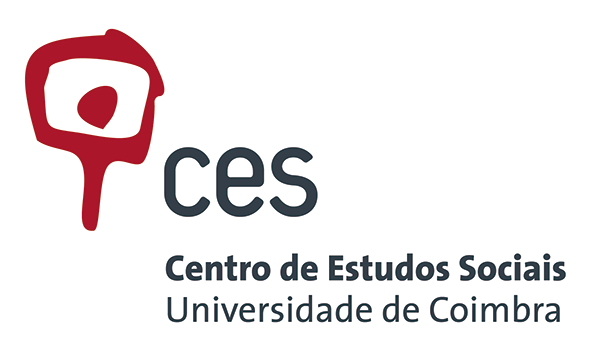News

Science and Technology Week 2022 | 19 to 27 November
The objective of the Science and Technology Week is to make Portuguese scientists known, as well as what they do and which are their contributions to the advancement of knowledge, promotion of scientific culture, progress and well-being of society.
Among the several actions for the popularization of science and technology organized by scientific institutions, universities, schools, museums and science centres throughout the country, OP.Edu in its activity of sharing knowledge on the policies and practices of education and training with the general public, associated itself to this Week with the promotion of an online Colloquium, which took place on November 24, 2022, the National Day of Scientific Culture, with open participation and under the theme Educational system and the fulfilment of April: contributions to mitigate socio-educational inequalities.
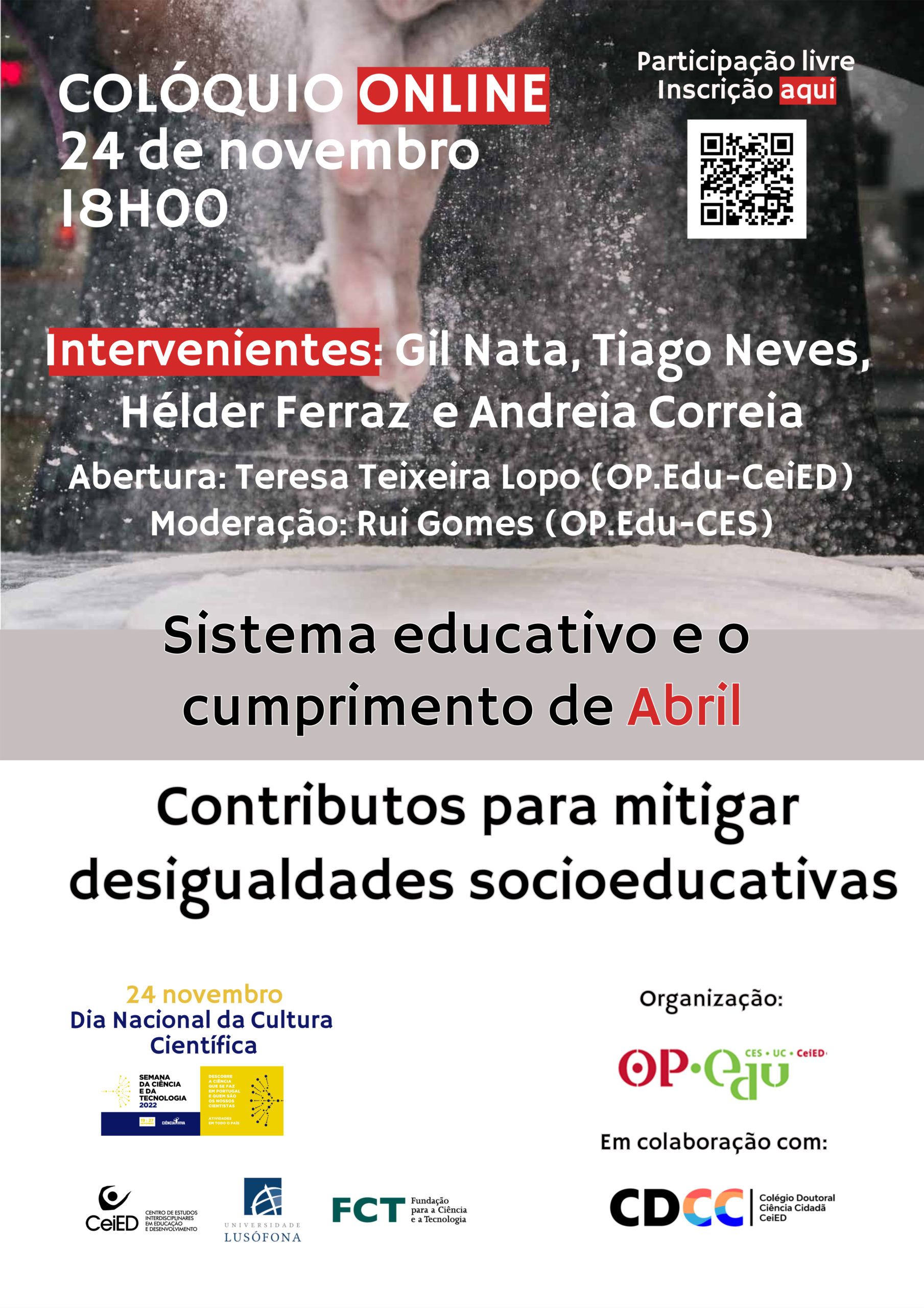
April 25 50 Years: Looking into the Past, Thinking about the Future | Educational system and the fulfilment of April: contributions to mitigate socioeducational inequalities | November 24 – ONLINE – 6:00 PM
The second colloquium of the Cycle April 25 50 Years: Looking into the Past, Thinking about the Future, will take place on November 24 at 6:00 PM, under the theme Education system and the fulfilment of April: contributions to mitigate socioeducational inequalities.
“April was a dream and continues to be a project for social justice. An educational system that is effective in mitigating socioeconomic inequalities is a fundamental pillar of that project”
In this Colloquium, OP.Edu invites researchers Gil Nata, Tiago Neves, Hélder Ferraz and Andreia Correia from the Centre for Research and Intervention in Education (CIIE) of the Faculty of Psychology and Education Sciences (FPCEUP) who, based on research and findings on issues of socioeducational (in)justice that they have been carrying out for several years, will discuss in a Colloquium open to the public, concrete solutions to make our education system more fair and equitable. They will focus, specifically, on the issues of grade inflation and access to higher education, the Portuguese compensatory education policy (TEIP) and the referral to professional paths, and the consequences for equity of different monitoring and accountability instruments in the educational system. In this way, they will be in their words, “giving our (small) contribution to help fulfil April”.
The Colloquium will also include the participation of Teresa Teixeira Lopo (OP.Edu-CeiED) in the Opening and Rui Gomes (OP.Edu-CES), who will be responsible for the Moderation of the debate.
The event, organized by OP.Edu with the collaboration of the Citizen Science Doctoral College – CeiED (CDCC), will be held and broadcast online.
Participation in the Colloquium is free, but prior registration is required at: https://forms.gle/r2VssSuMAwaqbd758
With this Colloquium taking place on November 24, in pursuit of its mission to disseminate and share scientific knowledge, OP.Edu joins the celebration of the National Day of Scientific Culture created in honor of professor, science communicator and researcher Rómulo de Carvalho.
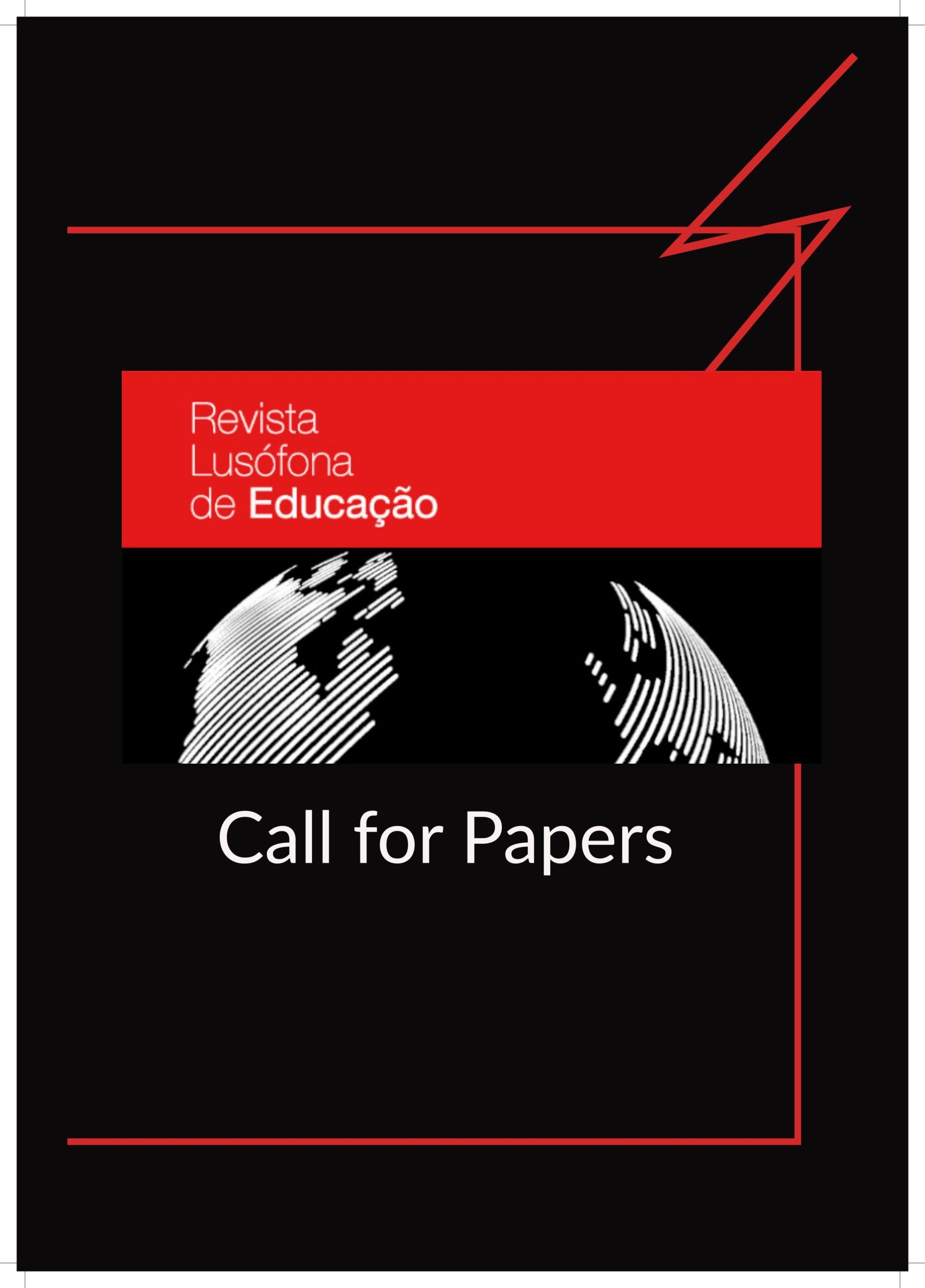
Call for papers | Institutional Discourses of Authority on the School and the Education Systems: Circulation and (re)Production of Meanings in Education Research
Call for papers for the thematic dossier Institutional Discourses of Authority on the School and the Education Systems: Circulation and (re)Production of Meanings in Education Research published by Revista Lusófona de Educação.
Guest Editors: Luís Manuel Bernardo (CHAM, Universidade NOVA de Lisboa, Portugal), Daniel Bart (Théodile-CIREL, Université de Lille, France) and Teresa Teixeira Lopo (CeiED-OP.Edu, Universidade Lusófona, Portugal). This thematic dossier welcome contributions that problematize the following aspects (the list is not exhaustive):- How discourse works and the mechanisms used to construct authority in institutional discourses on the School and/or education systems;
- How institutional authority discourses are received by the scientific community of education sciences, and the effects produced in the discourses of education research;
- The counter discourse on the School and/or education systems, its discursive functioning and limits;
- Specific cases and contexts where authority discourses in education are used or discussed;
- Representations, figures, agents, types of texts susceptible of generating authority discourses in education;
- The contribution of education researchers for the different forms of institutional authority discourses on the School and education systems: reports from national or international organisations, curricula, school assessments, professional prescriptions, textbooks, teacher training, etc.;
- The positionings and circulation of actors in education (researchers, experts, politicians, leaders, teachers, trainers, activists, etc.) in the places where authority discourses on the School are prepared, and the questioning of their frontiers.
Languages of submission: Portuguese, French, English, Spanish
Important dates: Submissions: until 30 November 2022; Reviewing: until 28 February 2023; Publication: in the first half of 2023
Detailed information about this call can be retrieved here
RLE is indexed in SCOPUS. H index 10, Q3, IF ( 0.215 ).
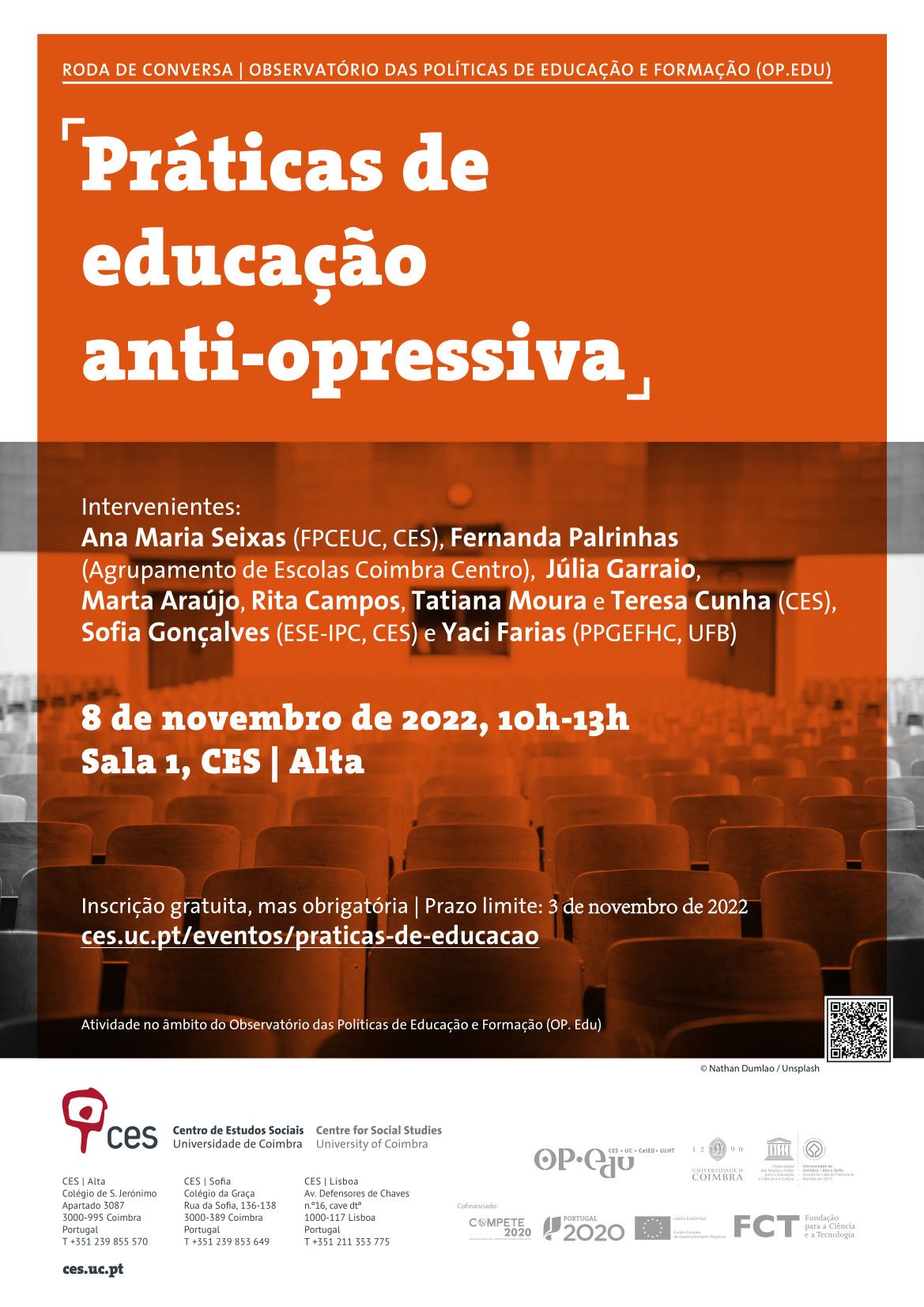
Roundtable | Anti-Opressive Education Practices | Coimbra CES Alta – Room 1 | November 8 | 10:00 AM-13:00 PM
It will take place on the November 8, in CES Alta – Room 1 – starting at 10:00 AM – the Roundtable Anti-Opressive Education Practices
This roundtable intends to promote a dialogue about teaching practices based on an anti-oppressive conception of education. It will be a space to debate pedagogical practices that challenge the hierarchies that maintain social inequalities through unequal power relations and that, therefore, seek to confront injustices that marginalize and harm individuals and social groups.
The roundtable will start with an initial presentation on some examples of anti-oppressive educational proposals developed in the context of a doctoral research project. Afterwards we will discuss the urgent need to expand and consolidate anti-oppressive educational practices in a more global context.
Additional information on this event can be found here
Notícias / News
- Home
- News
